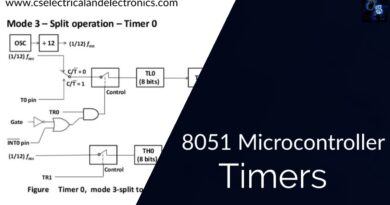Top 11 Free Courses On Battery For Engineers With Documents
Hello guys, welcome back to our blog. Here in this article, we will discuss the top 11 free courses on battery for engineering students, and each course on battery is covered by top professors.
Ask questions if you have any electrical, electronics, or computer science doubts. You can also catch me on Instagram – CS Electrical & Electronics.
Also, read:
- What Is TCM, Transmission Control Module, Working, Purpose
- Top 100 HiL hardware in loop Interview Questions With Answers For Engineers
- Driver Monitoring Systems In Vehicles, Working, Driver Sleepy Alert
Free Courses On Battery For Engineers
11. Equivalent Circuit Cell Model Simulation
What you’ll learn in this course includes designing equivalent-circuit models for lithium-ion battery cells. This course, also available for academic credit as ECEA 5731 within CU Boulder’s Master of Science in Electrical Engineering program, covers understanding the function of each element within such models, determining their parameter values through lab-test data analysis, and utilizing these models to simulate battery cell behaviors under diverse load conditions.
By the course’s conclusion, participants will be equipped to:
- Describe the function of each component within an equivalent-circuit model.
- Calculate approximate parameter values for a circuit model using data obtained from simple lab tests.
- Determine the coulombic efficiency of a battery cell based on lab-test data.
- Utilize the provided Octave/MATLAB scripts to compute the open-circuit-voltage relationship and optimize dynamic parameter values for the model.
- Conduct simulations of electric vehicles to estimate range and specify drivetrain components.
- Simulate battery packs to comprehend and forecast behaviors, especially when there are variations in parameter values among individual cells.
Equivalent Circuit Cell Model Simulation
10. Battery Comparison, Manufacturing, and Packaging
What you’ll learn in this course encompasses understanding various aspects of battery management systems, including components like electrical and thermal protections, cell balancing, and state of charge and state of health estimation. This course comprises four modules:
- Battery Comparison: Participants will explore comparisons between different types of batteries.
- Manufacturing: This module delves into the manufacturing processes involved in battery production.
- Packaging: Participants will learn about the packaging techniques employed in battery design and construction.
- Battery Management Systems: This section focuses on identifying the components of battery management systems, such as electrical and thermal protections, cell balancing, state of charge, and state of health estimation.
Battery Comparison, Manufacturing, and Packaging
09. Primary and Secondary Batteries
What participants will gain from this course is a solid understanding of the fundamental principles behind battery design aimed at maximizing energy and power density specifically for automotive applications. The course is divided into four modules:
Primary and Secondary Batteries: This module emphasizes the foundational concepts and basic operational principles of batteries. Topics covered include battery electrode active materials, performance metrics, life cycle evaluation, and an outlook on the commercialization of smart energy systems.
Primary and Secondary Batteries
08. Battery State-of-Health (SOH) Estimation
What you’ll gain from this course is the expertise to implement state-of-health (SOH) estimators tailored for lithium-ion battery cells. With six modules in total, this course, also available for academic credit as ECEA 5733 within CU Boulder’s Master of Science in Electrical Engineering program, offers comprehensive knowledge on the subject.
Throughout the course, participants will:
- Identify the primary degradation mechanisms inherent in lithium-ion cells and comprehend their mechanisms.
- Utilize provided Octave/MATLAB scripts to estimate total capacity employing various methods such as WLS, WTLS, and AWTLS, using lab-test data, and effectively assess the results.
- Compute confidence intervals for total-capacity estimates to gauge their reliability.
- Calculate estimates of a cell’s equivalent-series resistance utilizing lab-test data.
- Understand the tradeoffs involved in joint and dual estimation of state and parameters, and discern the necessary steps to ensure robust estimates, including advanced concepts covered in the honors section.
Battery State-of-Health (SOH) Estimation
07. Battery State-of-Charge (SOC) Estimation
In this course, participants will delve into the implementation of various state-of-charge (SOC) estimation techniques tailored for lithium-ion battery cells across seven modules. Also offered for academic credit as ECEA 5732 as part of CU Boulder’s Master of Science in Electrical Engineering degree, this course provides a comprehensive understanding of SOC estimation methods and their evaluation.
By the course’s conclusion, participants will be equipped to:
- Implement voltage-based and current-based state-of-charge estimators, recognizing their inherent limitations.
- Understand the rationale behind each step in the sequential-probabilistic-inference solution.
- Utilize provided Octave/MATLAB scripts to execute a linear Kalman filter for state-of-charge estimation and assess the outcomes.
- Implement provided Octave/MATLAB scripts for state-of-charge estimation using an extended Kalman filter and sigma-point Kalman filter on lab-test data, and critically evaluate the results.
- Develop a method to identify and discard faulty voltage-sensor measurements, enhancing the reliability of SOC estimation processes.
Battery State-of-Charge (SOC) Estimation
06. Battery Pack Balancing and Power Estimation
Throughout this course, participants will gain expertise in designing balancers and power-limits estimators specifically tailored for lithium-ion battery packs, across six comprehensive modules. This course, also available for academic credit as ECEA 5734 within CU Boulder’s Master of Science in Electrical Engineering program, covers a range of topics aimed at enhancing the efficiency and performance of battery packs.
By the course’s conclusion, participants will be proficient in:
- Evaluating various design options for cell balancing systems and elucidating their respective advantages and disadvantages.
- Designing component values for simple passive balancing circuits.
- Utilizing provided Octave/MATLAB simulation tools to assess the required balancing speed for a battery pack.
- Computing the remaining energy and available power using a simplified cell model.
- Using provided Octave/MATLAB scripts to calculate available power employing a comprehensive equivalent-circuit cell model.
Battery Pack Balancing and Power Estimation
05. Lithium Based Batteries
In this course, participants will gain knowledge about active materials, chemistry, and manufacturing processes associated with lithium-based primary batteries. This course is structured into four modules, with a focus on understanding the intricacies of lithium-based batteries:
Lithium-based Batteries: Participants will delve into the identification of active materials, chemistry, and manufacturing processes specific to lithium-based primary batteries.
04. Batteries and Electric Vehicles
In this course, participants will explore various aspects of battery performance within the context of zero emission vehicles, EV charger networks, and second-life applications of EV batteries, along with standards and regulatory requirements. This course comprises five modules, each covering key topics related to batteries and electric vehicles:
Batteries and Electric Vehicles: This module will concentrate on understanding battery performance in zero emission vehicles, EV charger networks, and the repurposing of EV batteries for second-life applications. Additionally, it will cover the relevant standards and regulatory requirements in this field.
Batteries and Electric Vehicles
03. Algorithms for Battery Management Systems Specialization
In this specialization, you’ll embark on a comprehensive journey to master the essential functions of a battery management system (BMS). You’ll delve into the workings of lithium-ion battery cells, learning how to mathematically model their behaviors. Additionally, you’ll gain proficiency in writing algorithms to estimate critical parameters such as state-of-charge (SOC), state-of-health (SOH), remaining energy, and available power. Moreover, you’ll acquire the skills needed to design balancers and power-limits estimators tailored for lithium-ion battery packs.
Applied Learning Project:
As part of this specialization, learners will have the opportunity to engage in hands-on learning through an applied project. Starting with provided code templates in Octave/MATLAB, participants will develop their own code to simulate lithium-ion battery cells and packs. They will implement algorithms to estimate SOC, SOH (capacity and resistance), remaining energy, and available power. This practical project will enable learners to apply their newly acquired knowledge in a real-world context, reinforcing their understanding of battery management systems and lithium-ion battery technology.
Algorithms for Battery Management Systems Specialization
02. Introduction to battery-management systems
In this course, you’ll build a solid understanding of lithium-ion battery cell operations and the essential requirements of a battery management system (BMS). With five modules comprising the curriculum, this course, also available for academic credit as ECEA 5730 within CU Boulder’s Master of Science in Electrical Engineering program, forms the foundational knowledge necessary for the subsequent modules in the specialization.
Upon completion of this course, you will:
- Identify and explain the major functions performed by a battery management system, clarifying their significance.
- Associate battery terminology with corresponding definitions to ensure comprehensive comprehension.
- Recognize the primary components of lithium-ion cells and their respective roles in battery function.
- Grasp the mechanisms by which a battery management system measures current, temperature, and isolation, as well as its control of contactors.
- Identify electronic components essential for providing protection and determine the minimum set of protections required.
- Calculate the stored energy within a battery pack accurately.
- Outline the manufacturing processes involved in various types of lithium-ion cells and identify potential failure modes associated with them.
Introduction to battery-management systems
01. Battery Technologies Specialization
In this specialization, participants will gain a comprehensive understanding of batteries in electric vehicle scenarios through a series of five courses:
Basic Principles of Battery Design for Automotive Applications: This course focuses on the fundamental operating principles of battery design, aiming to maximize energy and power density for automotive applications.
Zinc and Nickel Battery Selection and Size Applications: Participants will delve into the active materials, chemistry, and manufacturing processes involved in various zinc and nickel battery selections and their applications.
Lithium-Based Primary Batteries: This course explores the active materials, chemistry, and manufacturing processes specific to lithium-based primary batteries.
Battery Management Systems: Participants will learn about the components of battery management systems, including cell balancing, state of charge estimation, and state of health estimation.
Electric Vehicle Battery Specialization: This specialization encompasses a broad range of topics, including battery types, applications, architecture, cell chemistries, battery charging modes and standards, battery management systems, cell balancing, wire harnesses, and battery connectors.
Applied Learning Project:
As part of this specialization, learners will engage in a lab project during Course 5. They will choose a topic from one of the five courses and prepare a lab report covering technology developments, current research, potential environmental impacts, etc. These reports will undergo peer review and be submitted in Module 5 of Course 5.
Battery Technologies Specialization
This was about “Free Courses On Battery For Engineers“. I hope this article may help you all a lot. Thank you for reading.
Also, read:
- 10 Tips To Maintain Battery For Long Life, Battery Maintainance
- 10 Tips To Save Electricity Bills, Save Money By Saving Electricity
- 100 (AI) Artificial Intelligence Applications In The Automotive Industry
- 100 + Electrical Engineering Projects For Students, Engineers
- 1000+ Control System Quiz, Top MCQ On Control System
- 1000+ Electrical Machines Quiz, Top MCQs On Electrical Machines
- 1000+ MATLAB Simulink Projects For MTech, Engineering Students
- 50 Tips To Save Electricity At Home, Shop, Industry, Office
Author Profile
- Chetu
- Interest's ~ Engineering | Entrepreneurship | Politics | History | Travelling | Content Writing | Technology | Cooking
Latest entries
 All PostsMay 12, 2024What Is Solver In MATLAB Simulink, Fixed, Variable Solver, It’s Types
All PostsMay 12, 2024What Is Solver In MATLAB Simulink, Fixed, Variable Solver, It’s Types All PostsMay 9, 2024Top 5 Plus 5 Best Automotive Courses For Engineers From Udemy
All PostsMay 9, 2024Top 5 Plus 5 Best Automotive Courses For Engineers From Udemy All PostsApril 29, 2024Top 11 Free Courses On Battery For Engineers With Documents
All PostsApril 29, 2024Top 11 Free Courses On Battery For Engineers With Documents All PostsApril 19, 2024What Is Vector CANoe Tool, Why It Is Used In The Automotive Industry
All PostsApril 19, 2024What Is Vector CANoe Tool, Why It Is Used In The Automotive Industry








